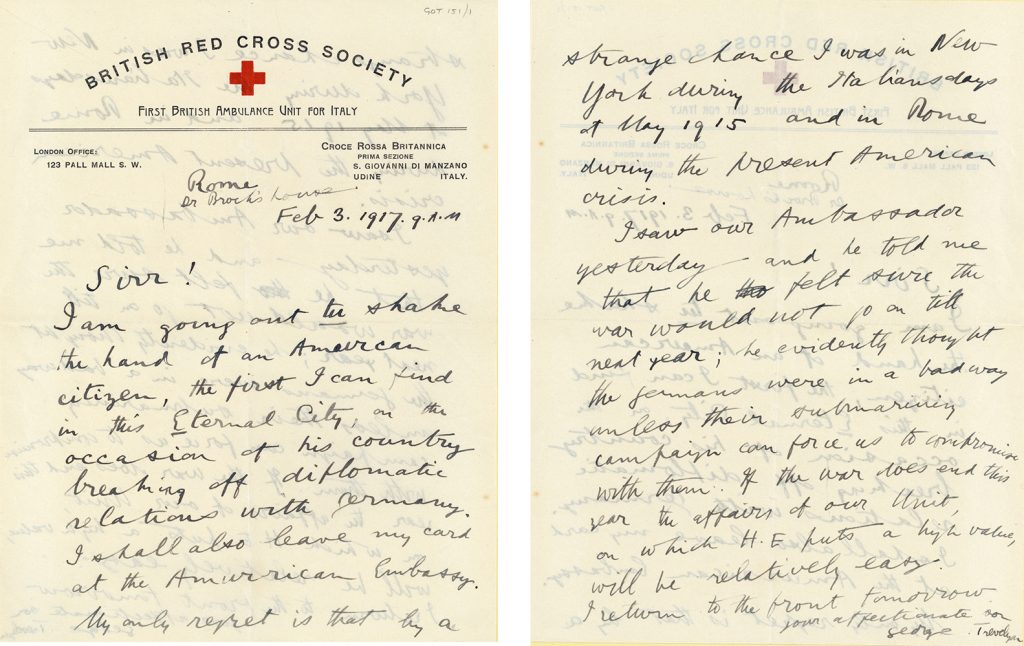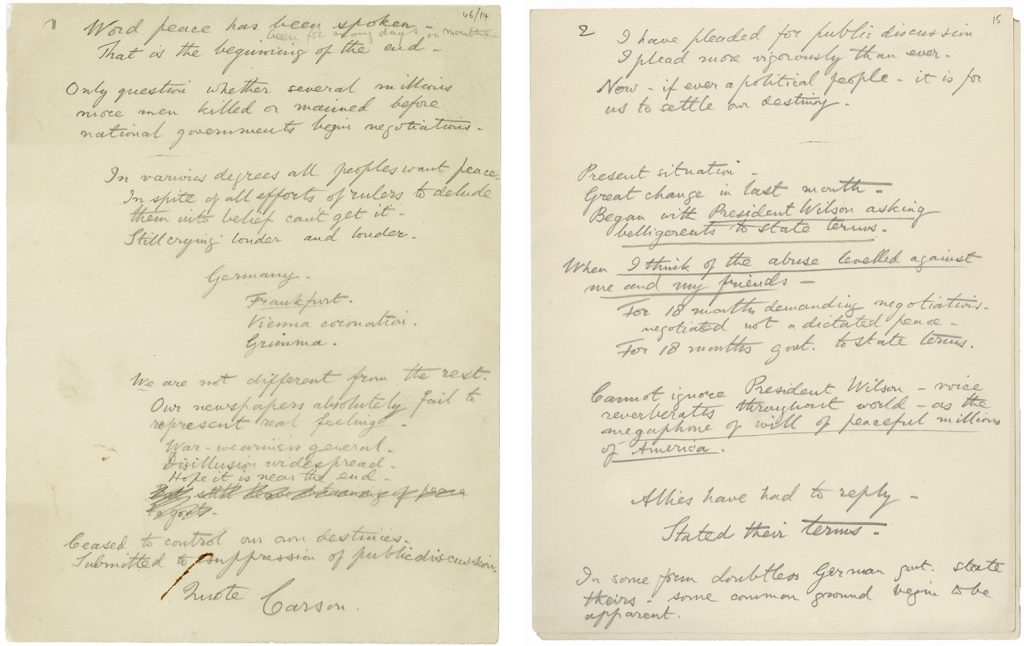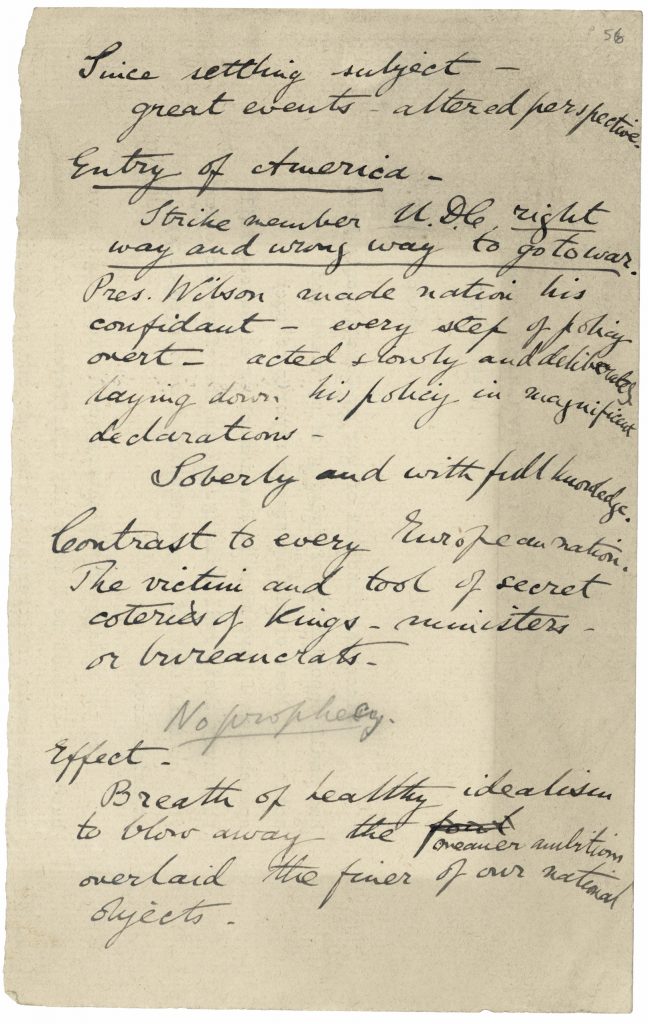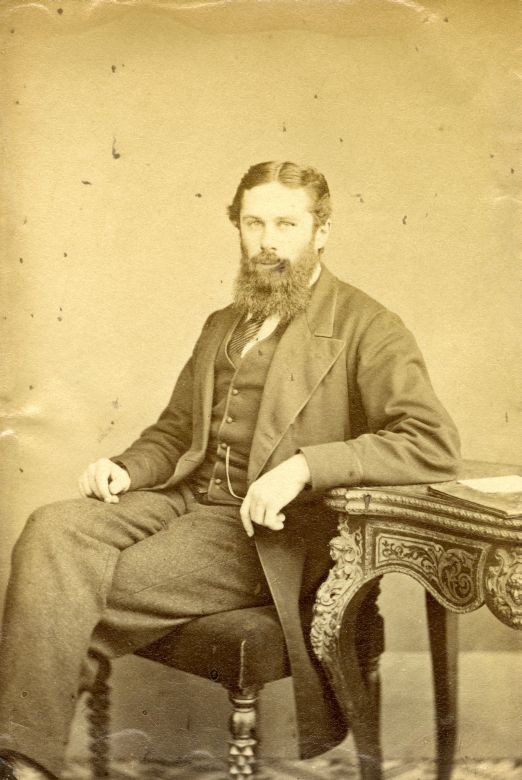Author: George Evans-Hulme, Associate Fellow of the Royal Historical Society is currently researching for his MPhil in Modern British History at the University of Cambridge. This post is one output of a visit to Newcastle University Special Collections to investigate the Mary Moorman archive.
The wonder of archival research is that it connects us to the people of the past who were once as real as we are but have now passed away. From the remnants they left behind, we can catch a glimpse of their hopes and dreams, their thoughts and passions.
The Mary Moorman archive provides a deep insight into the life of Mary Moorman (a Wordsworth scholar) and that of her father, the eminent historian George Macaulay Trevelyan.
The material within the Moorman archive paints a detailed picture of Trevelyan’s public-spirited life, including his work with the National Trust and as an ambulance driver during the First World War.
It also sheds light on the great tragedy of the historian’s life: the death of his eldest son, Theodore, at the age of four and a half.
Theodore was an intelligent, humorous child who delighted in dressing up as one of his beloved Household Cavalry soldiers and reciting poetry. He died unexpectedly of appendicitis on a family trip to Swanage in April 1911.
George Trevelyan, and his wife Janet, were initially numb with grief. George’s sister-in-law, Molly, who was with them, thought the couple were ‘wonderfully brave’ in the days that followed. But all the heartbroken George could bring himself to say about his eldest son was: ‘he will never grow up’.
Theodore was taken up to the Lake District for burial. ‘It was raining, and mists were on the hills’ when Theodore and his parents arrived in Windermere. But the sight of the ‘primroses and the anemones in the woods and the green spring’ brought some consolation to George and Janet.
Theodore was buried close to nature in the fellside graveyard of the Holy Trinity Church, with ‘the flowers and deep peace of the mountain resting over him’. The landscape of Langdale, which already meant so much to the grieving couple, brought them ‘courage’ and the comfort of the familiar backdrop helped them process their loss.
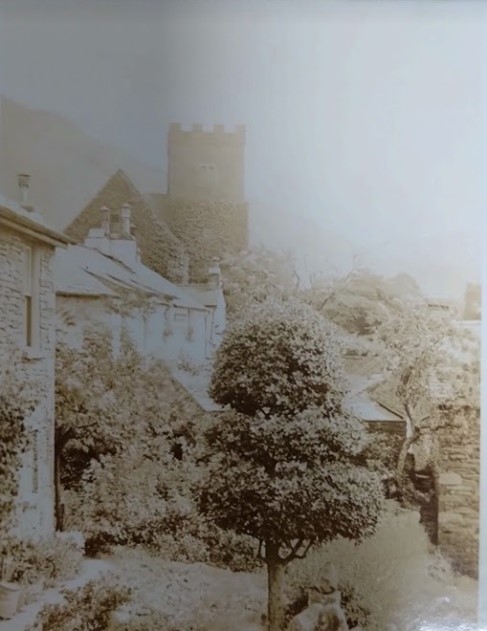
The Holy Trinity Church, Langdale, where Theodore was buried in 1911. His parents were later laid to rest with him in the Lakeland graveyard, beneath the bracken and the rocks of the fells which meant so much to them – Source: GOT 9/28/109
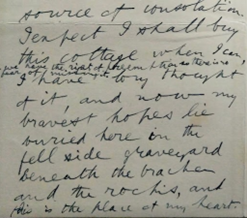
After Theodore’s death, G. M. Trevelyan decided to formally purchase the family’s holiday cottage in Langdale. He had ‘long thought of it’ and, now Theodore was buried there, the Langdale Valley took on even more importance as ‘the place of my heart’ – Source: MM 7/3
In the days that followed, George Trevelyan was inspired to reflect on his own life. He no longer aspired to a ‘great and important future’. Now, ‘the family is what I care for, and looking at nature’.
Janet Trevelyan, from the outset, had sought comfort from the happier memories of Theodore. In the Lakes, she decided to write down ‘a continuous story’ of his life. This story was shared with family and friends as a memorial to the young boy.
Forty years later, with the encouragement of her husband, Theodore’s story was published publicly. Janet felt that, even so many years later, ‘the larger world should have a share in him’.
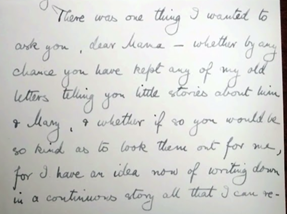
Extract from Janet Trevelyan’s letter to her Mother-in-Law, Caroline Trevelyan, requesting she send any letters detailing ‘little stories’ that she could use to help write the ‘continuous story of all that I can remember’ of Theodore – Source: GOT 9/28/101
Some of Janet’s relatives have since suggested that it was perhaps a mistake to make so private a situation public. However, as a letter written to Mary Moorman, Theodore’s elder sister, several decades later, explains: ‘sometimes seeing a sort of new picture of a grief, and how it can be borne, shifts all one’s own learning towards a new kind of love and understanding’.
For the historian, who requires a cold analytical eye but also a sympathetic heart, these records of the past allow us to connect with a family who suffered a dreadful tragedy more than a century ago. They also remind us that others have lived and walked this earth as we do today but are now all gone, like ghosts at dawn – a point which G. M. Trevelyan himself once made a very long time ago.

